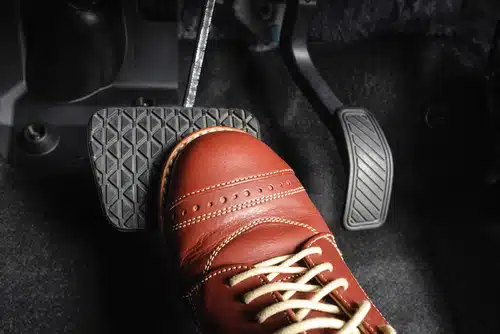Home » Blog » Car » Car Lifestyle » Time to Check Your Demerit Points? Here’s Why and How
Categories
Tags
animal welfare
breed profile
buying a car
buying a pet
Car
car accessories
car care
car features
car insurance
Car safety
car sales
car service
cat
cat behaviour
cat body language
Cat Breeds
cat food
cat insurance
comprehensive car insurance
Dog
Dog Behaviour
dog body language
Dog Breeds
dog food
Dog Insurance
dog training
eco friendly cars
Kitten
New Car
pet accessories
pet activities
Pet Adoption
pet breeders
pet days of the year
pet fun stuff
Pet Health
pet insurance
pet parenting
Pet Safety
pet services
Puppy
rescue pets
road safety
road trip
safe driving
Recent Blog:
Facebook Posts
1 day ago
Growing old sometimes means we can’t take care of pets anymore. Find out some advice on what to do when this happens:![]()
![]() Senior Pet Parents – Contingency Plans for Your Pet – bit.ly/44bzwkS
... See MoreSee Less
Senior Pet Parents – Contingency Plans for Your Pet – bit.ly/44bzwkS
... See MoreSee Less
Senior Pet Parents' Contingency Plans for Pets
www.pd.com.au
Sometimes senior pet parents need more downtime. For older pet owners, this can be tricky to navigate if their dog or cat is full of beans and wants to3 days ago
Before you rev up the engine, let’s run through a checklist of things to do before starting your car. Not only do these steps ensure your safety (and that of others around you), but they also help in maintaining your vehicle's longevity.![]()
![]() Driving Tips: Your Checklist Before Starting Your Car -
... See MoreSee Less
Driving Tips: Your Checklist Before Starting Your Car -
... See MoreSee Less
Driving Tips: Your Checklist Before Starting Your Car
www.pd.com.au
Heading out for a drive? Hold up a second! Whether you're dashing off to work, running errands, or embarking on a road trip adventure, there are a few1 week ago
Are intestinal worms setting up camp in your dog’s gut without paying rent? Here’s how to spot the main culprits and get rid of them too:![]()
![]() Preventing, Identifying and Treating Intestinal Worms in Dogs - bit.ly/43YjCKu
... See MoreSee Less
Preventing, Identifying and Treating Intestinal Worms in Dogs - bit.ly/43YjCKu
... See MoreSee Less
Preventing, Identifying and Treating Intestinal Worms in Dogs
www.pd.com.au
Intestinal worms, such as roundworms in dogs are one of the least glamorous topics on the planet. These intestinal parasites that basically use our dogsWhen last did you check your demerit points? While you could consider demerits a punishment for bad driving, ultimately, the national demerit system is in place to encourage safe driving behaviour. Which means we’re all safer on the roads. The rules may only vary slightly from state to state or territory but it’s your responsibility to know what they are as you start your next road trip. You’ll also want to know when your demerit points reset.
In this article we help you get to grips on all things demerit points and understand how to check your own, so you can better avoid adding them to your tally. Hopefully avoiding a nasty fine too.
In this article

Why do we need a demerit point system anyway?
We all want safe roads and while fines do hold people accountable for bad behaviour, money is not the great equaliser. However, a national demerit point system certainly is.
According to the Transport NSW website:
The Demerit Points Scheme is a national program that allocates penalty points (demerits) for a range of driving offences. The scheme is designed to encourage safe and responsible driving. Along with financial penalties, demerit points provide a strong incentive to drive within the law.
While the fines and points allocated to offences vary from state to state and territory, the demerit point scheme is uniform. So, no matter what jurisdiction you’re from or where you commit the offence, you will receive a fine and points will be added to your licence.
Demerit point limits by state and territory
You may be surprised to learn we don’t start out with demerit points and ‘lose them’ for driving or traffic offences. In fact, the opposite is true.
You start with zero demerit points and your driver’s licence will be suspended once you reach a certain demerit point limit. That limit depends on the type of licence you hold. In some cases, you might be able to make a choice: take the suspension or keep your licence under the threat of losing it for a much longer amount of time if you offend again within a certain period.
In each Australian state and territory, the most demerit points a full standard licence can incur before facing a licence suspension are:
- Demerit points ACT – 11 points within a three-year period
- Demerit points NSW – 12 points within a three-year period
- Demerit points VIC – 12 points within a three-year period
- Demerit points QLD – 12 points within a three-year period
- Demerit points SA – 12 points within a three-year period
- Demerit points TAS – 12 points within a three-year period
- Demerit points WA – 12 points within a three-year period
- Demerit points NT – 12 points within a three-year period
However, if you have a Learner (L plate) or Provisional (P plate) licence you have fewer demerit limits to work with.

How do I check my demerit points?
Checking your demerit points is pretty important for keeping tabs on your driving record; thankfully, it’s not too tricky. In Australia, each state and territory has its own system in place. Some transport authorities will also let you apply for your traffic offence history.
Here’s a breakdown of how you can check your demerit points:
Online
Most states and territories offer an online service through their official transport authority websites. You’ll typically need:
- Your driver’s licence number
- Your date of birth
- Sometimes, additional identification details
Just head over to the website, look for the section on licenses or demerit points, and follow the prompts.
Phone or in-person
Many places also allow you to check your demerit points over the phone or in person at a local service centre. You’ll need the same kind of personal identification details as online. Whether visiting in person or calling, make sure to have your driver’s licence with you.
In some cases, you can also request a statement of your demerit points by mail. This involves sending a written request along with copies of your identification to your transport authority. It will mail back a statement of your demerit points.
Additionals to remember
Here are a couple of other titbits for you to be aware of:
- Privacy matters: Your demerit points are personal information, so each method will require some form of ID verification.
- Service NSW app and others: Some states, like NSW, have apps where you can check your demerit points easily. It’s worth checking if your state offers this convenience.

Demerit point FAQ
Now you know how to check your demerit points, here are the answers to some of Australia’s most asked demerit point questions.
Q: When do demerit points reset?
Generally speaking, your demerit points will reset or clear from your driving record after a period of good behaviour. This typically spans three years from the date of the offence. It can vary slightly depending on which state or territory you’re in because each has its own set of road rules and regulations.
Sometimes, certain states decide to wipe demerit points earlier than the three-year period to encourage good driving behaviour. This recently happened in Sydney, where 1.3 million motorists stood in line to shed a demerit point each if they maintained a clean driving record for at least 12 months:
Q: How many demerit points for speeding?
It depends on how much you exceed the speed limit, and it can vary slightly between states and territories. Here’s a general guide, but remember to check your local transport authority for the most accurate information:
- Exceeding the speed limit by 1 to 10 km/h: Usually 1 to 3 points.
- Exceeding the speed limit by 11 to 20 km/h: Typically 3 to 4 points.
- Exceeding the speed limit by 21 to 30 km/h: Often results in 4 to 5 points.
- Exceeding the speed limit by 31 to 40 km/h: Generally leads to 6 points.
- Exceeding the speed limit by over 40 km/h: This is a serious offence and can result in 7 points or more. In some cases, you’ll be hit with immediate suspension of your driver’s license.
These points are just a guide. Penalties can be more severe depending on the circumstances, such as if you’re in a school zone or if it’s a repeat offence.
Q: How many demerit points for phone use?
Using a mobile phone illegally while driving typically attracts around 5 demerit points. It can be higher in some states or during peak periods like holiday seasons when double demerit points might apply.
In some regions, the penalties have been ramped up to deter drivers from using their phones due to the high risk of distraction and accidents. For instance, New South Wales has one of the strictest penalties. Drivers facing a penalty of up to 5 demerit points outside of double demerit periods, which can jump to 10 points during those times.

Q: Do demerit points transfer between states?
Sorry for the bad news but yes, demerit points do follow you across state lines. When you commit a traffic offence in a state/territory other than where your driver’s licence is issued, here’s what generally happens:
- The offence is recorded. The state or territory where you committed the offence records the incident and notifies the transport authority in the state or territory that issued your driver’s licence.
- Points are applied to your home license. Your home state or territory then applies the demerits to your driver’s licence according to their own demerit points system. So, even if the offence occurred elsewhere, it’s the demerit points system of your licence’s issuing state or territory that determines how many points you get.
- Fines paid to the offence state. You usually pay any fines associated with the offence directly to the state/territory where you were caught breaking the law.
Demerit points and car insurance
At PD Insurance we want you to be safe (and demerit free) on the roads. Your impeccable driving record helps keep your insurance premiums down and ensure you and your car arrive safely.
If you get into a fix and your car is damaged or you drive into and damage someone else’s, car insurance could be a bank-saver. Comprehensive car insurance not only covers damage you do to your own car, it gives you legal liability cover for damage you do to others’ cars and property. In addition, with PD Insurance there are several added benefits and optional extras.
It’s super easy to get a quick, cost-effective online quote from us right now – just click below.
Share On:




